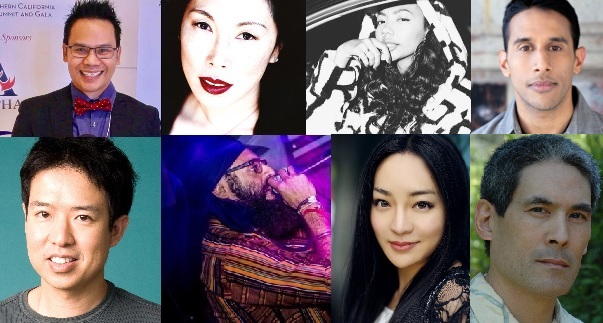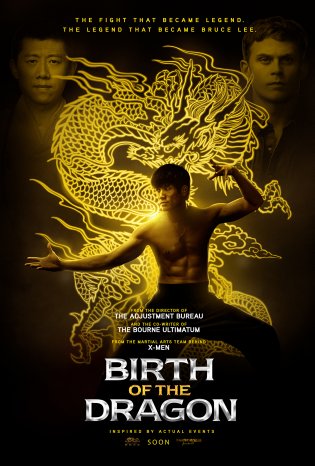
Representation in Hollywood is an issue by itself, but Asian representation in Hollywood is near non-existent. With the state of Hollywood being that black equates to “diversity” (despite there being more types of diversity out there than just being black) and Asian characters are still overrun with stereotypes or whitewashing, Asian actors and actresses have had a tough uphill battle in breaking through the glass ceiling.
JUST ADD COLOR is all about exploring how all types of diversity are showcased in Hollywood, so I thought it would be fantastic to have an ongoing series called POC in Hollywood. First up, the Asian American experience in Hollywood. In this longform piece, we’ll take a closer look at some of the issues and biases plaguing Asian creatives in Hollywood.
This is a longform, so if you’d like to jump to specific parts, here’s the table of contents:
- Whiteness as the default
- The pain of exoticism
- The #OscarsSoWhite effect and the Academy
- What Hollywood’s doing right and wrong
- What audiences need to know
Whiteness as the default

Historically, Hollywood has used Asian locales and people as props, while white characters are given layered characteristics. In short, white characters have been treated as humans, while everyone and everything else are only developed in stereotypes.
The most recent examples of this include The Birth of the Dragon, in which a white character is used to frame Bruce Lee’s biopic, Doctor Strange, which sees Tilda Swinton playing an Asian role and Benedict Cumberbatch as Doctor Strange, which is a white character used to exploit a stereotypical Asian mysticism, Ghost in the Shell, which uses Japanese culture to frame Scarlett Johansson as The Major and The Best Exotic Marigold Hotel series, which features India as a backdrop for white characters and Dev Patel playing a stereotypical Indian character.
“What’s particularly silly about The Birth of the Dragon is that they invented a fictional white character thinking that that would be what North American audience would want,” wrote Quentin Lee, The Unbidden director and founder of Margin Films in an email interview. “The filmmakers obviously fell flat on their faces. Not only it wasn’t historically accurate for the story, the film ended up insulting Bruce Lee and the audience who would support it. It was a creative misfire.”
Chris Tashima, an Academy-winning director for the 1998 short film Visas and Virtue and co-founder of Cedar Grove Productions, wrote that while he hasn’t seen The Birth of the Dragon yet, he found the basis of the film “ridiculous.”
“It’s understandable, why this has been the practice—being that traditionally, decision makers have been white males, and like anyone else, will want to see stories about themselves, and that audiences have traditionally been thought of as young, white males,” he wrote. “However, all of that is changing. It has been changing for a while, and it’s easy to see where it’s going: towards a diverse world. That’s an old practice and you’d think Hollywood would want to project, and put themselves on the cutting edge, and be more inclusive. It’s old, and tired, and more and more, I think audiences will want to see something different, something more truthful.”
“I think the overarching theme that runs through how Hollywood/the West represents POCs has to do with the ease with which they are able to strip POCs of agency over their own stories,” wrote Kesav Wable, Brooklyn-based actor, writer, 2011 HBO American Black Film Festival finalist for his short film, For Flow and Sundance lab short-listed screenwriter for a script about a Pakistani boxer wrongfully accused of planning a terror attack.
“This may come across as a bit exaggerated or radical, but I do believe that there is a link between white imperialist concepts such as ‘manifest destiny’ and ‘white man’s burden,’ which validated a lot of the literal takings from POCs that happened throughout earlier periods in civilized history, and now, in a media-hungry world where information, content, and stories are the most valuable currencies, there is an analogous “taking” of the narratives that POCs have lived through. By depicting POC characters through the lens of a white character, it enables white audiences to keep POCs’ stories at arm’s length, and to not completely empathize with those characters because they are not given the complete human dignity and complexity that is afforded the white character.”
“Perhaps, this, in a way, damps down the guilt that white audiences may feel if the POCs stories/circumstances have to do with the literal takings that were exacted by their ancestors. Or it’s just good for a cheap laugh. The truly insidious effect of POCs being usurped from their own narratives is that, even many of us POCs begin to start viewing things through a white lens and stop questioning whether these stories truly represent who we are because of how pervasive white-controlled media is.”
Wable used the upcoming film Happy End, which is about a bourgeois European family living amid the current refugee crisis. “Granted, I haven’t seen the film, so it’d be presumptive of me to conclude that refugees are not conferred with dignity/complexity as characters, but the very thought that French filmmakers think that shining a light on a bourgeois family with the refugee crisis as a ‘backdrop’ can be instructive about their world, speaks volumes about what it is white people are most interested in; themselves,” he wrote. “In this case, apparently, the context is a rueful rumination on their own blindness to the refugees’ plight. Somehow the irony of the very film’s existence as a manifestation of that blindness seems to be lost on them.”
Mandeep Sethi, filmmaker and emcee, also discussed about Hollywood’s tendencies to erase non-white people from their own stories. “I think centralizing POC stories around white characters is Hollywood’s way of taking a black or brown story and making it about white people,” he said. “Our culture is full of amazing stories and histories and Hollywood loves to cherry pick what they like but leave out the real nitty gritty including the people who created, interacted, and setup that story.”

Sinakhone Keodara, founder CEO of Asian Entertainment Television and host of Asian Entertainment Tonight, wrote that Hollywood’s penchant for using whiteness as a default is “a heinous tradition that is long overdue for a change.”
“Rather than trying to normalize Asian presence on screen to a wide American audience, Hollywood often goes the tired, well-worn and ‘safe’ route of using a white character in an attempt to more easily relate the character to a majority white American audience. It’s cheap and unnecessary, because the proper and more effective way of relating a character to an audience is writing a character with emotional depth,” he said. “Ethnicity informs and colors our individual and community experiences, but emotion transcends ethnic boundaries. With political correctness aside, Hollywood needs to stop engaging in a form of neo-emotional and neo-psychological colonialism against people of color, especially Asians by injecting whiteness into our stories.”
“I think that centralizing PoC stories around white characters is always going to happen as long as the people telling these stories are white,” wrote Asia Jackson, an actress, model and content creator. “What Hollywood needs is not only diversity on-camera, but to also make greater efforts to allow filmmakers of color to tell their own stories.”
Jodi Long, an actress who was a castmember of the first Asian American TV sitcom All-American Girl and member of the actors branch of Academy of Motion Picture Arts and Sciences, wrote that while whiteness as the default is the reality in Hollywood, a study shows a much needed change in film. “I just saw a new study The Inclusion Quotient done by the Geena Davis Institute on Gender in Media where the reality in terms of box office is changing, where women and diverse actors in lead roles are now performing extremely well,” she wrote. “Money talks in Hollywood but we still have to get beyond the implicit (unconscious) bias that factors into which projects get greenlit based on outmoded ways of thinking.”

Kunjue Li, Ripper Street actress and founder of China Dolls Productions Ltd., also addressed how money rules Hollywood, despite Hollywood not making the audience demand actually work for them financially. “I don’t think [whitewashing] is the right thing to do, and second of all, I don’t think it’s very commercial,” she said. “…[I]f they want to sell to Chinese audiences, which is the second biggest film market, then they need to tell a Chinese story…I think you have to tell a Chinese story [with] a Chinese cast.”
“If the film [was] an an American-Chinese co-production, [it would] actually help with the film itself because then it doesn’t have to go through the quota system…which means that only 30 percent of foreign films are allowed to show in China markets every year. If they do it as a co-production, then they get 1/3 of Chinese funding, but they have to have 1/3 of a Chinese [cast]. They’ll have one-third of Chinese funding, they’ll have domestic showings, they don’t have to go through the quota system, it’s much more feasible. Commercially, [whitewashing] doesn’t even work. I don’t understand why people keep doing that.”